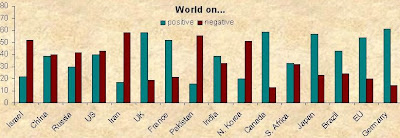Cricket, Football, Maoism... every society has a public leisure activity bringing citizens together, a national pastime if you will. Here in Turkey, nationalism is our national pastime.

And there is plenty reason to be that; from the day a Turk is born, they are bombarded with patriotic slogans such as, “A Turk is worth the world,” and “A Turk’s only friend is a Turk.”
(To be fair, not all slogans are as nation-centric, what with our national motto “Peace at home, peace in the world” suggesting either an appreciation of one nation’s importance in contributing to greater worldwide peace, or accepting that by the time we have peace here, everyone else will have settled on Mars)
These nationalistic slogans in most countries are limited to trailer parks and talk radio, but here they are fairly ubiquitous. Back in the early days of the republic, they served a purpose uniting disparate peoples behind a common Turkish identity. Now they reassure Turks that everyone else would love them if they only got a chance to know them.
Not that Turkey needs the world’s recognition, Turks already have enough friends (70 million according to the last census) and the rest of the world is, unfortunately, just not “Turkish” enough to bother.
It is no surprise that a BBC World Service poll released earlier this year suggests Turks might have a problem with the non-Turkish part of the world. Citizens from twenty-one countries were asked their views on whether certain countries had positive or negative influence in the world. Turkey’s views are listed from negative to positive*:

Interpreting the results,
- Turkey is with the West in disliking the “axis of evil” participants Iran and North Korea, as well as the “axis of mischief” entries Russia, China and Pakistan
- Turkey is with the Mideast in disliking America, anybody that is friends with America and any “country” that America “didn’t even bother calling” after that “one night” when the “country” was feeling vulnerable and “trusted it” and they had a “great time” but still America “never called”
- Yes, that goes for Israel too
- We dislike the countries darker than us: India, Brazil and South Africa
- We dislike the countries lighter than us: the UK and France, hell… most of the European Union really
- Turkey also doesn’t trust the traditional paragons of evil: Canada and Japan. What are they up to?
- Germans are just cuddly and loveable
Remember, it’s really not racism if you dislike all peoples equally, it's just xenophobia.
*For those curious about the average world perception:


 Of course, some might point out that the
Of course, some might point out that the 














